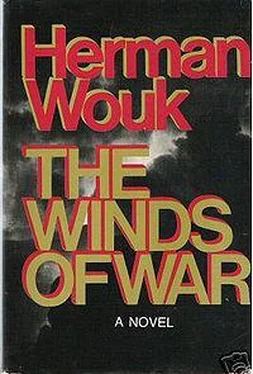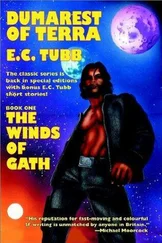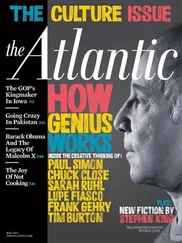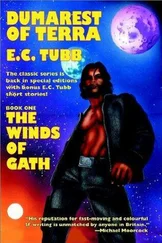Herman Wouk - The Winds of War
Здесь есть возможность читать онлайн «Herman Wouk - The Winds of War» весь текст электронной книги совершенно бесплатно (целиком полную версию без сокращений). В некоторых случаях можно слушать аудио, скачать через торрент в формате fb2 и присутствует краткое содержание. Год выпуска: 1971, Издательство: Collins, Жанр: Историческая проза, на английском языке. Описание произведения, (предисловие) а так же отзывы посетителей доступны на портале библиотеки ЛибКат.
- Название:The Winds of War
- Автор:
- Издательство:Collins
- Жанр:
- Год:1971
- ISBN:нет данных
- Рейтинг книги:4 / 5. Голосов: 1
-
Избранное:Добавить в избранное
- Отзывы:
-
Ваша оценка:
- 80
- 1
- 2
- 3
- 4
- 5
The Winds of War: краткое содержание, описание и аннотация
Предлагаем к чтению аннотацию, описание, краткое содержание или предисловие (зависит от того, что написал сам автор книги «The Winds of War»). Если вы не нашли необходимую информацию о книге — напишите в комментариях, мы постараемся отыскать её.
About the Author
Herman Wouk's acclaimed novels include the Pulitzer-Prize winning
;
;
;
;
;
; and
.
The Winds of War — читать онлайн бесплатно полную книгу (весь текст) целиком
Ниже представлен текст книги, разбитый по страницам. Система сохранения места последней прочитанной страницы, позволяет с удобством читать онлайн бесплатно книгу «The Winds of War», без необходимости каждый раз заново искать на чём Вы остановились. Поставьте закладку, и сможете в любой момент перейти на страницу, на которой закончили чтение.
Интервал:
Закладка:
“I told him in September, when I was turned back from Switzerland. I thought it might prove useful. He’s an excellent fellow and a fine classical scholar, though rather weak on early Byzantium. Well, he has been marvellously sympathetic. He never argued my religious position, but simply wrote to the United States for verification. He’s got the documents, and I have copies. So — we have friends in the Vatican, my dear, I hope we won’t need them, but it is a sort of insurance.”
Natalie, who could think only of the possible effect on her baby, was pleased and amazed. This was like finding a forgotten rusty key to a dungeon cell. Aaron’s youthful religious flip-flops were his own business; but the technicality might indeed bring help and refuge, or even escape in an emergency! This disclosure also explained, at long last, her parents’ peculiarly strained and glum attitude about Aaron. Deep down, she herself felt a small involuntary stirring of disdain for her uncle.
She said, “Why, Aaron, I’m gasping a bit, but I think it’s most amazingly clever of you to have stopped being a Jew more than forty years ago. What foresight!”
“Oh, I’m still a Jew. Don’t make that mistake. So was Paul after his conversion, you know. You’re not disgusted with me, then, as your parents were? How nice.”
A satirical smile wrinkled her mouth. “A Jew ’s Jesus, indeed. You fraud.”
“He was a Jew’s Jesus.” Aaron Jastrow straightened up inside the heavy cape and raised a bearded proud chin. “I insist on that. The book is the fruit of a bitter wrestle with myself. I was frankly swept away by the whole opulent Christian structure of thought and art that I discovered in college, all built on what that Palestinian fellow called a murdered Jew. We Jews pretend that structure doesn’t exist, Natalie — that is, Jews like your parents and mine do — but that won’t wash, you know. It’s there. In the end I probed past the religious metaphors and came to grips with Jesus as he was, trying to grasp the historical reality. That was the essence of my wrestle for a year. I found an extraordinarily winning and magnetic personality, a talented and tragic poor relative of mine, who lived in Palestine in olden days. So the book really -”
The telephone rang. “Ah,” Jastrow said, pushing himself out of his chair, “that’s bound to be Enrico. Get the baby, dear.”
Natalie hesitated, then said, “All right. Let’s go.”
At the wheel of a rusty, faded little car outside the hotel, a man wearing a clerical hat, and an overcoat with a ratty fur collar, waved a smoking cigarette at them in a thick peasant hand. “ Professore !” The librarian-priest had a face strangely like Mussolini’s — prominent brown eyes, big curved jaw, and wide fleshy mouth. But rimless glasses and a sweet placid expression under the flat black hat, as well as his indoor pallor, much reduced the ominous resemblance. “You look tired, Professore,” he said, after greeting Natalie in charming Roman Italian, and admiring the heavily wrapped, almost invisible baby. The car started with rheumatic wheezings.
“I’ve not slept well.”
The priest’s glance was mild and kind. “I understand. As you requested, I’ve made inquiries about your taking refuge in the Vatican. It’s not impossible, but the concordat pathetically limits our freedom of action. I would offer you one word of caution. Such exceptional expedients can have negative results. One calls attention to oneself. One becomes a special case.” He drove carefully down the almost deserted boulevard and turned into a street where people were crowding toward the Piazza Venezia, with placards swaying above their heads.
“The trouble is,” said Jastrow, “I already am one.”
The priest pursed his lips and tilted his head in a most Italian way. “True. Well, your cloudy nationality might be an advantage. If you are actually stateless, then clearly you are not an enemy alien.” Spanelli glanced around at Natalie with dropping eyes. “This is not true of your niece, naturally. One assumes your embassy will somehow provide for her—”
“Father, pardon me. Whoever gives me refuge must take her in too.”
The priest pursed his lips again and was silent. The crowd thickened as they neared the piazza: quiet sad-looking people in shabby winter clothes. The blackshirts carrying the placards were trying to hold up their chins and glare like Il Duce.
“These signs are viler than usual,” Jastrow said. Beside the car, a fat red-faced blackshirt marched with a crude cartoon of Mrs. Roosevelt sitting on a chamber pot, squawking obscenities about her husband. Ahead of the car, on another sign, a bag of money with a Roosevelt grin walked on crutches, smoking a cigarette in an uptilted holder.
“When the pot boils, the scum comes to the surface,” said the priest.
He slipped the car through narrow side streets, parked in a rubbish-filled archway, and guided them down an alley into the Piazza Venezia. The thronged square was surprisingly still. People stood around saying nothing, or chatting in low tones. The sky was gray, the wind strong and cold. Flag-bearing schoolchildren were huddled in front of the balcony in a docile mass, not laughing or playing pranks, just holding their flapping flags up and fidgeting.
The priest brought Jastrow and Natalie into a roped-off section near the balcony, where photographers clustered with reporters, including a few Americans, as well as the grinning happy Japanese correspondents Natalie had met at the party. Somebody produced a folding chair for her. She sat holding the sleeping baby tightly in her lap, now and then shuddering, though she wore a heavy sweater under her coat. The raw wind seemed to cut through to her skin.
They waited a long time before Mussolini suddenly stepped out on the balcony and raised a hand in salute. A crowd roar cascaded and re-echoed in the square: “ Duce! Duce! Duce!” It was a strange effect, since all the people were looking up silently, with blank or hostile faces, at the tubby figure in the gold-eagled, tasselled black hat, and the black and gold jacket, a get-up more like an opera costume than a uniform. Under the balcony, a few blackshirts were diligently manufacturing the cheers, huddled around microphones. A tall man in the uniform of the German Foreign Service appeared next, with a Japanese in a cutaway coat and high hat. They flanked the dictator, who was even smaller than the Oriental; and Mussolini looked as though he were between guards come to arrest him. The blackshirts quit their noise and turned their oval, sallow faces up at the balcony; a pack of waiters and barbers, Natalie thought, in sloppy pseudomilitary masquerade.
The brief speech was belligerent, the tone as belligerent, the gestures were very familiar and very belligerent but it all came out ridiculous. The sound did not fit the gestures. Mussolini flailed his fist when he dropped his voice, and shouted fiercely some innocuous prepositions and conjunctions, and at the most inappropriate points he grinned. The old puffy dictator, already defeated in Greece and shorn of much of his North African empire, seemed to be having a highly irrelevant good time, as he declared war on the United States of America. While the blackshirts at random moments cheered and shouted “ Doo-chay!” the crowd began to leave. Mussolini bellowed his last sentences at thousands of departing backs — an incredible sight in this dictatorship — an old ham actor scorned by the audience: “ Italians, once more arise and, be worthy of this historic hour. We shall WIN!” And again he smiled.
To blackshirt cheers, the three figures on the balcony withdrew; Mussolini came out twice to bow, but the mob was dispersing as though a cloudburst had started.
Читать дальшеИнтервал:
Закладка:
Похожие книги на «The Winds of War»
Представляем Вашему вниманию похожие книги на «The Winds of War» списком для выбора. Мы отобрали схожую по названию и смыслу литературу в надежде предоставить читателям больше вариантов отыскать новые, интересные, ещё непрочитанные произведения.
Обсуждение, отзывы о книге «The Winds of War» и просто собственные мнения читателей. Оставьте ваши комментарии, напишите, что Вы думаете о произведении, его смысле или главных героях. Укажите что конкретно понравилось, а что нет, и почему Вы так считаете.












